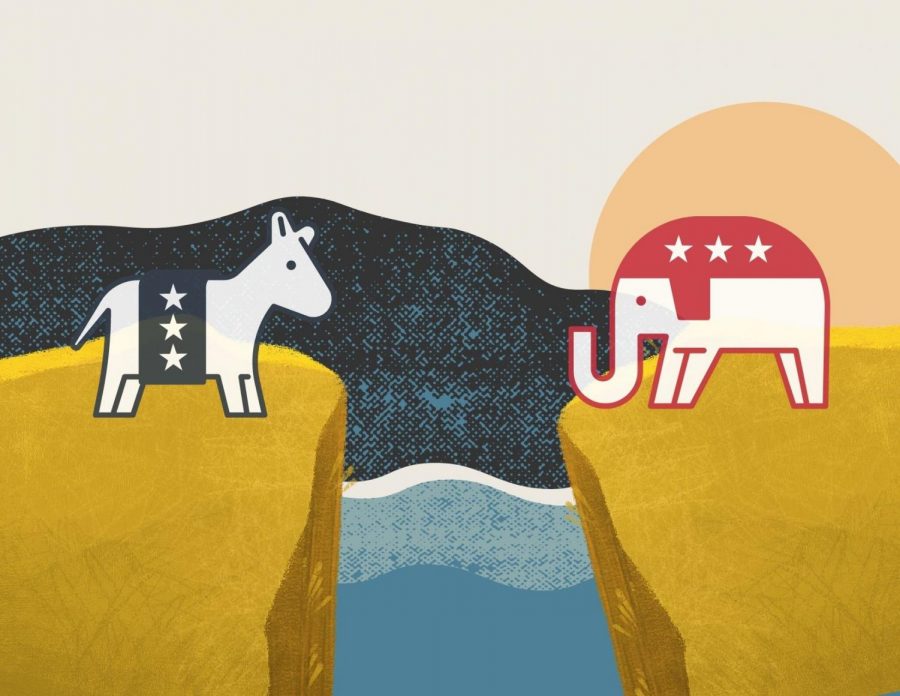In a time of serious political strain, it often feels hard to be heard by those in a different political party. It feels like people are against each other just for being a Republican or Democratic rather than for what they actually believe.
We currently stand in one of the biggest political divides in American history. From the division between Federalists and Anti-Federalists to Northern and Southern states to today’s Republicans and Democrats, political polarization has had profound effects in the U.S.
Recently, I watched a Jimmy Kimmel YouTube video from 2016 where Republicans at the Republican National Convention were asked what they thought of Democrats, and Democrats at the Democratic National Conventions were asked what they thought of Republicans. Some responses from Republicans were “a general disdain for God and country,” “brainwashed,” and “a crime syndicate.” Democrats said Republicans were “People who don’t have a clue,” “close-minded,” “stuffy,” and “racist.”
While the video primarily served to entertain an audience and not to convey information, these people’s thoughts were not far off a study done on what Republicans and Democrats thought of each other. According to a report done by Pew Research, roughly 82% of Republicans and 78% of Democrats characterize each other with at least one negative descriptor among close-minded, unpatriotic, immoral, lazy, and unintelligent.
It’s clear with feelings like these, the political divide is widening and we’re blocking each other out. In my own experience and hearing about others’ experiences, we’re having a harder time having any productive conversations. We can’t listen to each other because of these preconceived notions that Republicans are close-minded or racist and Democrats are unpatriotic and immoral. Listen to the person, not who you think the person is.
George Washington, a founding father, the first U.S. president, and the only U.S. president to not represent a political party, warned us of the consequences of political parties.
“The alternate domination of one faction over another, sharpened by the spirit of revenge, natural to party dissension… is itself a frightful despotism,” said Washington in his Farewell Address. “The disorders and miseries which result gradually incline the minds of men to seek security and repose in the absolute power of an individual.”
As Washington predicted, the division hasn’t just brought ideas of animosity towards each party, but also a desire for power over each other. It feels like every conversation needs to be won.
“In this sense it is that your union ought to be considered as a main prop of your liberty, and that the love of the one ought to endear to you the preservation of the other,” Washington said.
Everyone has their own reason for believing and supporting what they do. Everyone has their own story and deserves to be heard. For these reasons, a person’s political party should not be the defining factor of who they are.












